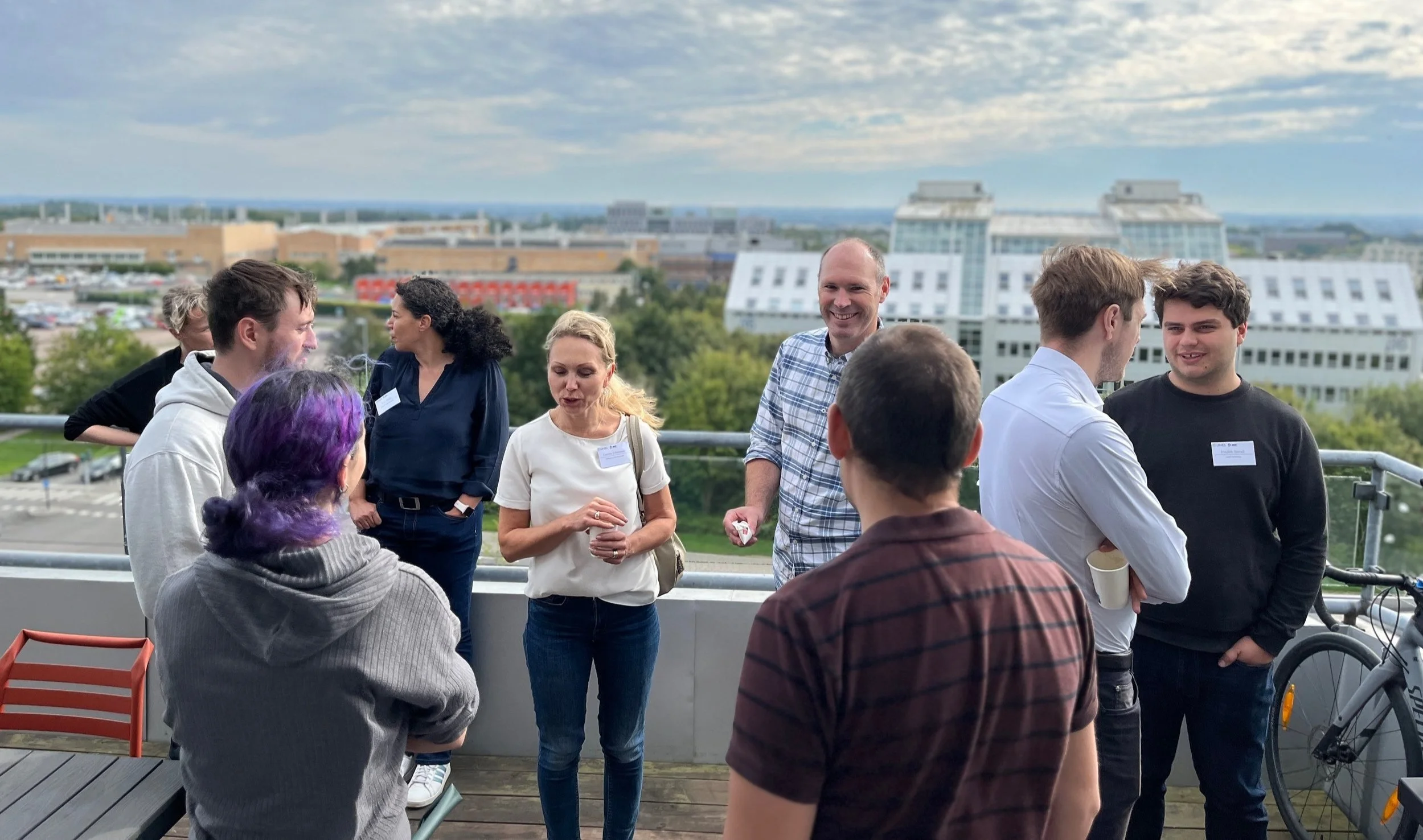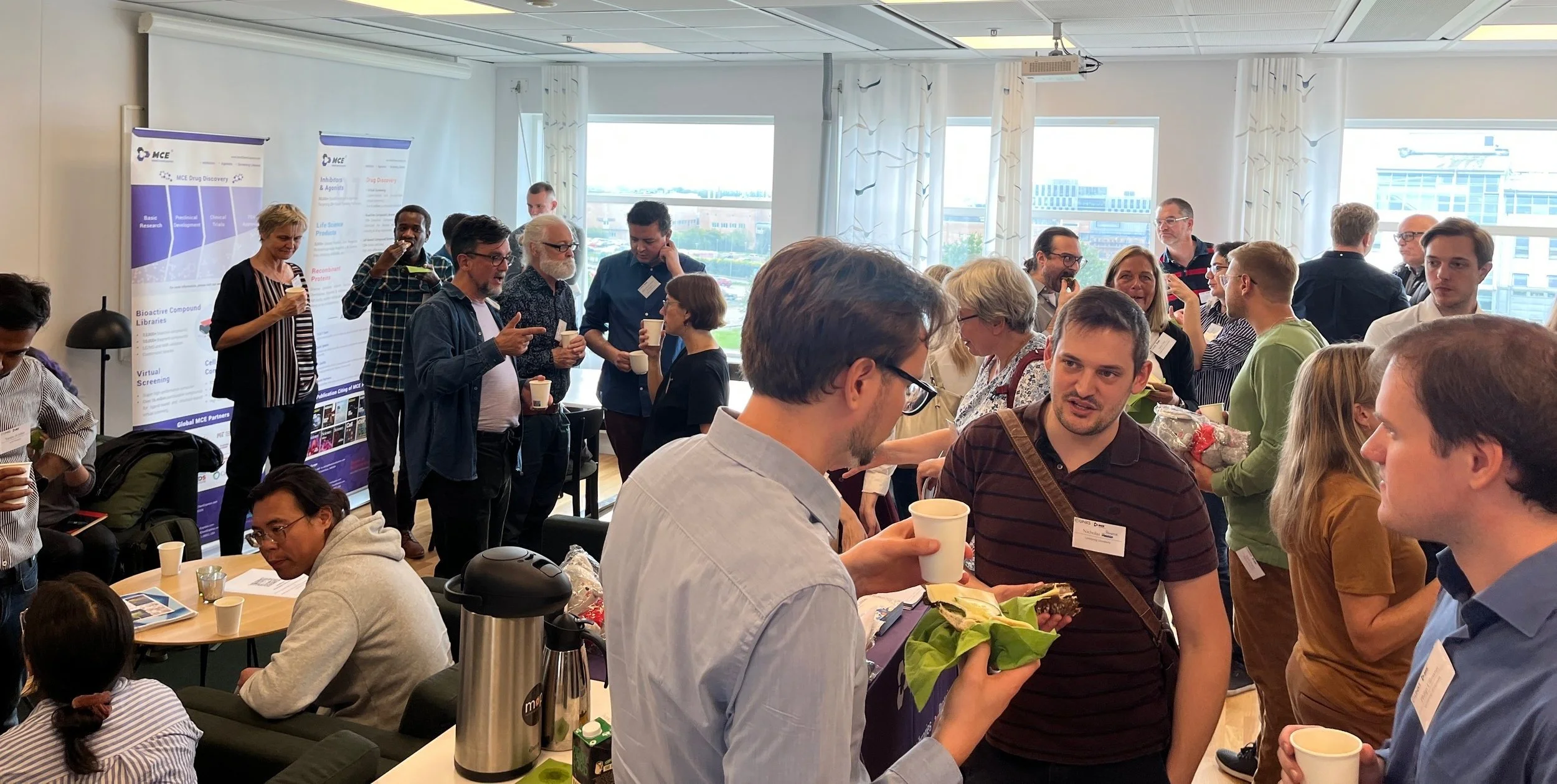Symposium and course on fragment-based lead discovery hit all the right marks
Participants taking a break at the FBLD symposium and course in mid-september at LINXS.
The recent symposium and course on structure-based drug discovery with focus on fragment-based lead discovery (FBLD) within the IPDD theme aimed to provide an overview of what is happening within the field, current challenges and future perspectives. Organiser Raminta Venskutonyte is happy with the turn-out and the varied scientific discussions.
FBLD involves using compounds of a small molecular mass (fragments) to find new hits, which bind to a protein of medical interest, which can then be further developed into therapeutic compounds. The high-throughput nature of current methods for FBLD and availability of a variety of techniques makes this a very succesful approach in drug development.
Around 70 people, both in person and digitally attended the symposium that was held in mid-September.
Raminta Venskutonyte is Assistant researcher at Medical Structural Biology, Lund University, and working group leader for the Structure-Based Drug Design working group.
– We had a nice line up of speakers, and people seemed to really enjoy the presentations. It shows that LINXS is a good platform for different people to meet, says Raminta Venskutonyte, Assistant researcher at Medical Structural Biology, Lund University, and working group leader for the Structure-Based Drug Design working group.
To ensure that the programme would be of interest to a wide audience, success stories of what can be done with fragment-based lead discovery in relation to the identification of new drugs, was mixed with presentations of different methods, and experimental approaches. The keynote was given by leading scientist Professor Roderick Hubbard, from University of York, who spoke about current perspective in fragment-based lead discovery.
– I myself have not used fragment-based lead drug discovery before, but I got some nice ideas for my own work based on the different presentations. Next step is to explore if I can apply FBLD in some of my projects, says Raminta Venskutonyte.
Students enjoyed visit to MAX IV and practical experience of X-ray crystallography
Eleven people attended the full course on fragment-based lead discovery, which ran from 19 – 22 September, and about 20 people joined online for two of the days.
The course covered both biophysical methods and various structural biology techniques (including X-ray and neutron crystallography, serial crystallography and cryo-EM) relevant for drug discovery.
To emphasize the use of FBLD, lectures on high-throughput X-ray data collection and crystallographic fragment screening were given by one of the event organisers Tobias Krojer, a scientist at MAX IV and a project manager at the FragMAX platform.
A large focus of the course was to highlight the various services available for researchers looking to do experiments at different facilities – with presentations from staff at Swedish and European large scale research facilities. Feedback from the course shows that students particularly enjoyed the visit to MAX IV, and to get practical experience of X-ray crystallography.
– It is important to provide a balanced programme of both theory and practical activities for the students, whereby they get a good overview of fragment based-lead discovery and can get ideas of how they could apply various approaches in their own research.
– I am happy that LINXS supported the theme of Integrative Pharmacology and Drug Discovery, as this turned out to be a great platform for our working group of Structure-Based Drug Design to bring attention to the subject and to provide great possibilities for networking, exchange of scientific knowledge and education within the topic, says Raminta Venskutonyte.
People discussing during the symposium. The lively interaction shows that LINXS is a good place to meet according to Raminta Venskutonyte.
The event was part of the IPDD theme, and organised by the Structure-Based Drug Design working group.



